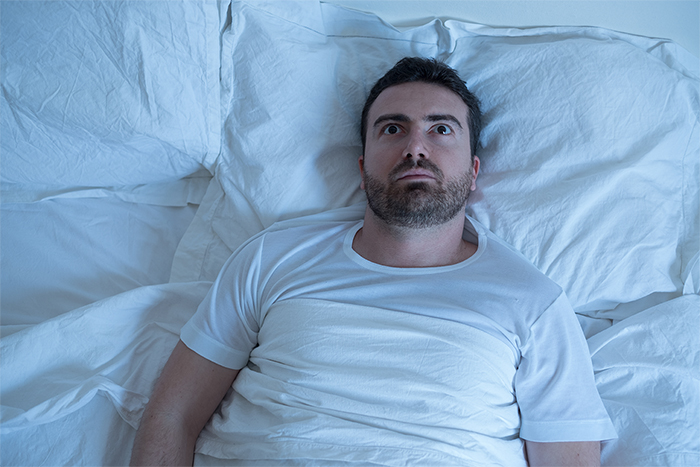5 Reasons You Might Be Having Trouble Falling Asleep at Night

Tossing and turning in bed, staring at the ceiling, counting sheep in
vain; sound familiar? Many Americans have trouble falling asleep. In
fact, one-third of Americans
say they lie awake at least a few nights each week. What’s this
attributed to? One possible explanation could be a sleep disorder.
According to the American Sleep Association, 50-70 million adults
in the US have a sleep disorder. Some of the most common sleep
disorders like insomnia, restless leg syndrome, narcolepsy, or
stress-related causes like anxiety and depression, relate to having
problems falling asleep.
1. Inconsistent sleep schedule.
If you don’t go to bed and wake up at the same time every day, you simply cannot get the rest your body and mind need. A consistent sleep schedule will synchronize your body’s internal clock, so you feel sleepy at a regular time every night.
2. Too much light exposure before bed.
It’s easy to zone out in front of the TV or your smartphone after a
day of work, but when you’re exposed to blue light in the evening, it
can disturb your sleep cycle. This light emitted from electronics can
delay your sleep onset, causing you to lay awake in bed.
3. Too much caffeine.
While it may seem obvious, caffeine is a sneaky stimulant that often
interferes with sleep. Consuming too much of it can lead to staying
awake in bed for hours. In some cases, it can result in insomnia too.
4. Stress.
Stress and worry from events in your personal or professional life might cost you precious sleep at night.
Overthinking, being anxious, or just stressing over things you can’t
change activate the fight or flight response in the body and might lead
to chronic stress. Too much of that, over time, results in chronic
insomnia, as shared by the Mayo Clinic.
5. Exercising too late.
Sometimes we just have to fit in exercise whenever we can, but
certain times of day can be costly to our rest. Working out too close to
bedtime can be overstimulating, causing us to lay wide awake when we
should be slipping softly into sleep.
source: www.sleepscore.com

Comments